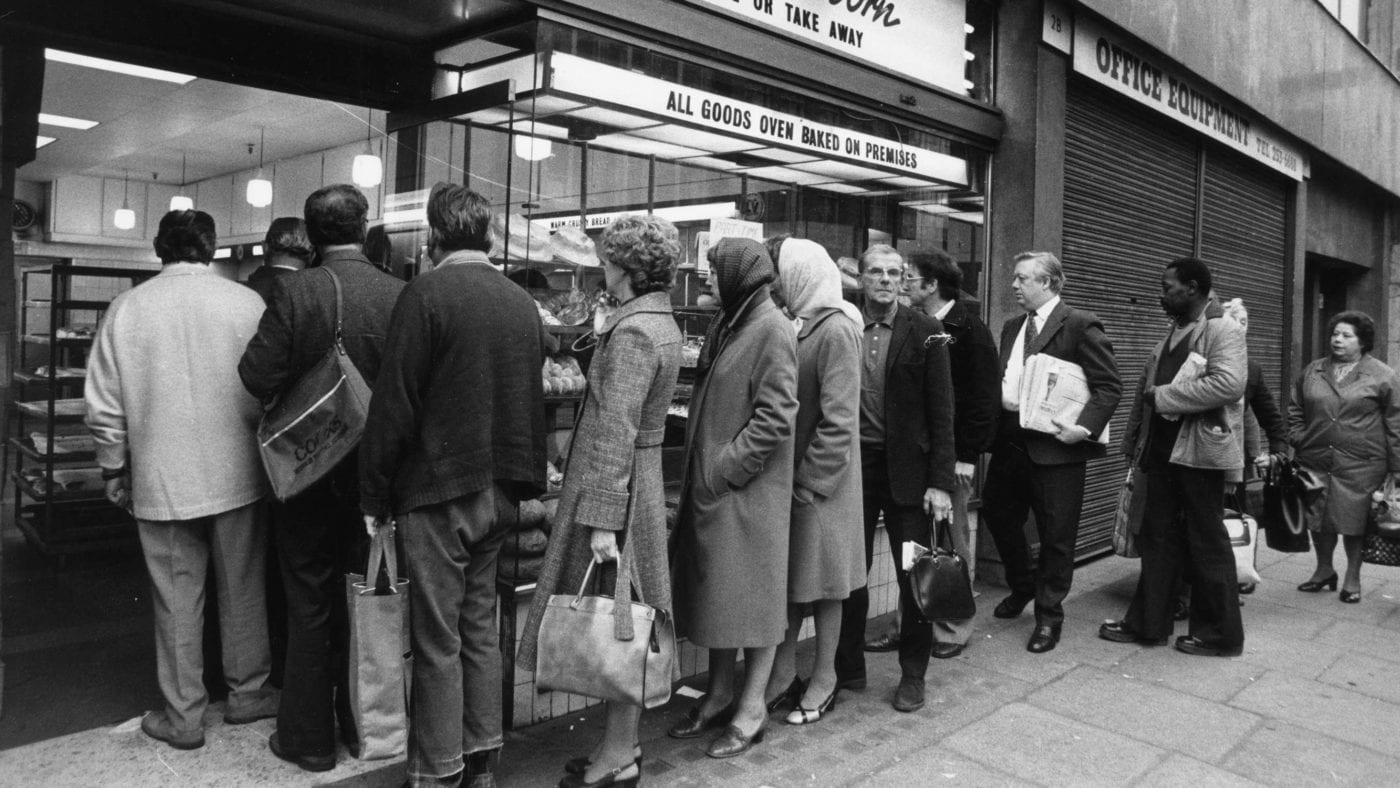‘Back to the 1970s?!’.
What was a few years ago a warning about the perils of a Corbyn government has lately become a semi-rhetorical question about the state of contemporary Britain.
The parallels are obvious enough. Sky-high oil and gas prices, wages failing to keep track with the cost of living and a chaotic political situation. At the same time, taking a trip 50 years down memory lane is quite instructive in exploring the profound, overwhelmingly positive, changes the UK has been through since. Problems abound, but we shouldn’t gloss over the fact we are a much richer, healthier, better educated country now than then.
Those who lament ‘neoliberalism’ or the excesses of the 1980s often seem to forget the scale of the malaise that encountered Margaret Thatcher when she took office in 1979. For to live in 1970s Britain was to experience an economy bedeviled not just by chronically high inflation (peaking at 24% in 1975), but by a stagnant, stodgy corporatism abetted by trade unions as mighty as they were intransigent.
It was to live in a country where the state was not just active, but domineering in a way most younger people today would find baffling. The utilities, railways, British Airways and even car companies were run by the state – with all the efficiency, dynamism and dedicated customer service that implied. It’s tempting to frame Thatcher’s victory in 1979 and her ensuing privatisations as the triumph of a particular ideology, but it was just as much a pragmatic reaction to people being fed up with the state of their public services.
Certainly there were exogenous economic shocks that Heath, Wilson and Callaghan had to deal with – two massive oil shocks in particular – but they were exacerbated by home-grown problems not least the excessive power and militancy of the unions.
Indeed, this week’s RMT strikes stand out precisely because of the rarity of such large-scale industrial action now. In 1979, which began with the Winter of Discontent, nearly 30 million working days were lost to strikes. In the past three decades the highest yearly figure (2011) was 1.4 million. The public understandably complain about inconvenience, but it’s a damn sight better than paralysis.
Politics was similarly paralysed, for virtually the whole decade. Bad as this week’s by-election defeats were for Boris Johnson, when James Callaghan lost successive by-elections it meant he no longer had a Commons majority.
For all that, there is one very important respect in which the 1970s were better than now – far more people could afford to buy their own home, and housing costs did not drain people’s pay packets the way they do now. That nationwide housing crisis has been exacerbated by another post-70s phenomenon – the increasing detachment of London and the south-east from the rest of the country, both in terms of wages and property prices.
That’s undoubtedly been good for some, but it’s been very bad indeed for others, not least anyone under 40 who though they might one day buy their own home. Add to that low to non-existent growth, stagnant wages, inflation, a brutal war in Europe and a grim, often farcical culture war and it’s easy to see why people feel profoundly despondent.
Nonetheless, for all the volatility and economic unease we see at the moment, it remains the case that Brits live much longer, consume products of far greater quality and variety, travel the world with ease and – for the most part – enjoy a far more open, tolerant society than in decades gone by. We really ought to take a good, hard look at the history books before declaring we’ve never had it so bad.
Click here to subscribe to our daily briefing – the best pieces from CapX and across the web.
CapX depends on the generosity of its readers. If you value what we do, please consider making a donation.


